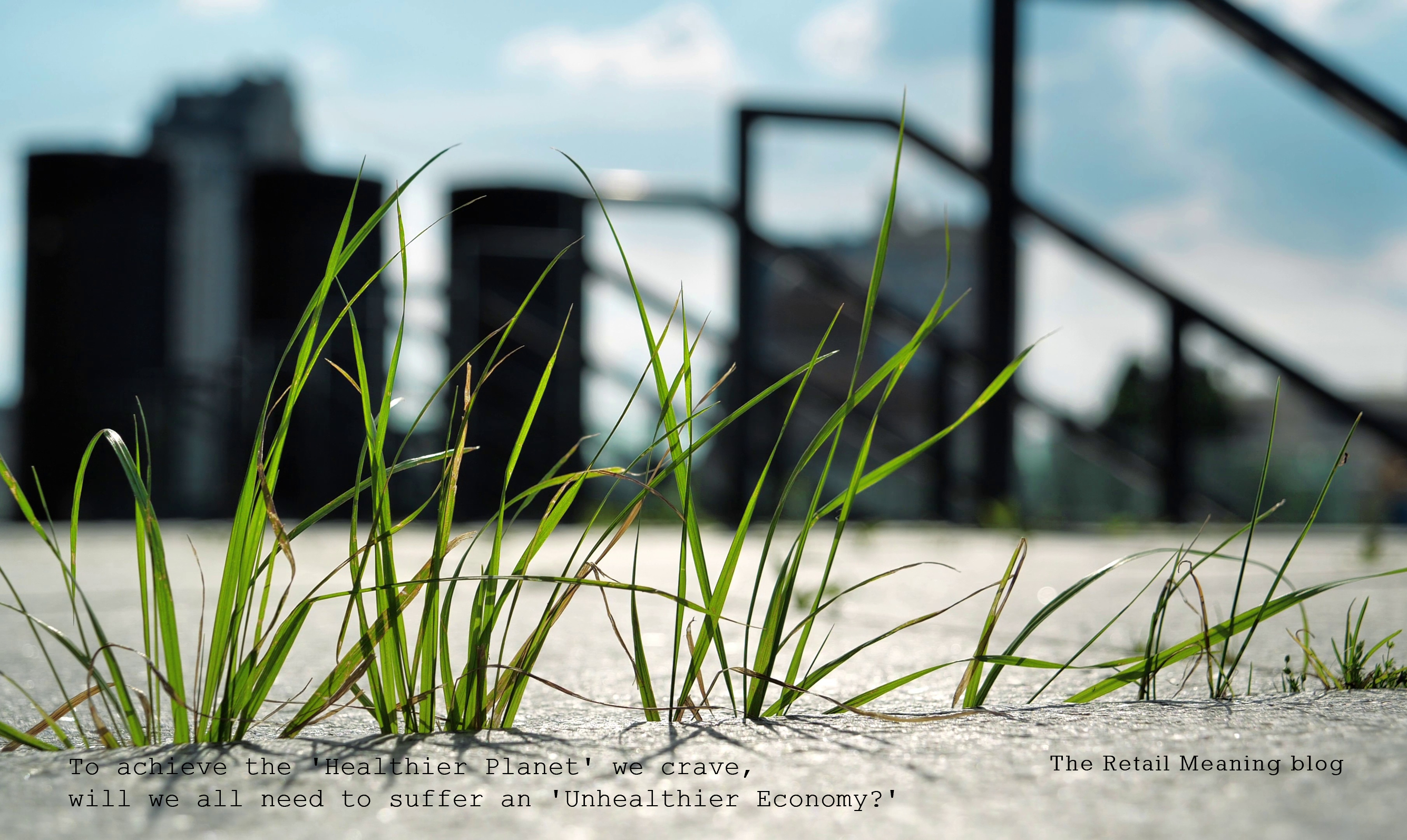Sustainability must mean less consumption. But should we be very careful about what we wish for?
The results from Primark for the recent period, including the ‘golden quarter of Christmas, show a 6% slump in like-for-like sales in the UK.
Primark has explained that this has been caused by fragile customer confidence and the wider uncertain economic outlook for the year ahead. Undoubtedly poor weather and the resulting low physical footfall also contributed.
It may also be that customers in the value/volume fashion market are finally shifting some of their selling to apps such as Vinted & Depop, to take advantage of the lower prices and ethical advantages of second-hand. Vinted was the 3rd most popular app downloaded last year in retailing.
Whatever the causes, fashion consumption is down. It is down at Primark, it is down as a market. And for most of the volume led retailers in it, it is down more seriously than for Primark.
So those of us who see that the only permanent way to achieve a healthier retail industry is to dramatically reduce its output, then we should be cheering in the streets. Reduced consumption, assuming that the pattern continues, will feed into reduced production from fewer manufacturing brands.
This should lead to a reduction in CO2 emisions, water -consumption, environmental pollution and the exploitation of our natural resources.
However, we live in a connected economy where, as the monthly obsession that economists have with consumer spending clearly shows, our lives and our livelihoods are very dependent on how much we all spend.
The more consumption, the more things we buy, then the ‘healthier’ the economy is, the more employment we have, the more money in our pockets and the happier we generally feel about our lives.
And of course, permanently lower consumption will cause a substantial initial shock to a society that has not realistically planned for the alternative ways of keeping its economy healthy. It will involve the closure of significant retail businesses, more empty shops and empty high streets, unemployment, higher prices. The hit will impact our taxes, our services and the fabric of our daily lives.
Ultimately, we will need to employ ourselves and amuse ourselves in a variety of different ways. Society adapts, and many of the younger generations have a more driven appetite for doing things in an environmental way. More than the previous generations.
And there will always be clothing manufacturers, retailers, shops and they will continue to employ many people working with much healthier processes and materials. This will be echoed across all areas of manufacturing and commerce.
But significantly there must be a shift to circular economies. And significantly these economies have to become more regional, national and local. Circular economies will only truly work when there is a balance of wealth between all parties in the circle.
The ‘unhealthy’ ethical & wealth imbalances and exploitations of the global manufacturing processes, must be replaced with ‘healthier’ regional ones where everyone is healthier and wealthier as a result.
This can all lead to a ‘healthier economy’ in every sense, contributing to a repaired and ‘healthier planet.’ Resulting in a fairer and more balanced society.
But this will have to be a steady and considered journey. When we have driven on one-side of the road all of our lives, then for society to instantly swap to the other side, can only result in hazardous conditions, with crashes and fatalities.
Can a more planned approach with alternative routes, sensible diversions, new rules, new habits, new fines & punishments, but also benefits and rewards, be achieved to deliver our healthier economy?
It will not be easy, and we had better brace ourselves for the ride.
And if the thought of Primark, and the like, disappearing from our high streets, and the reduction in our ‘spoilt for choice’ shopping ways fills us with dread, then are we really ready to make that journey anyway?
